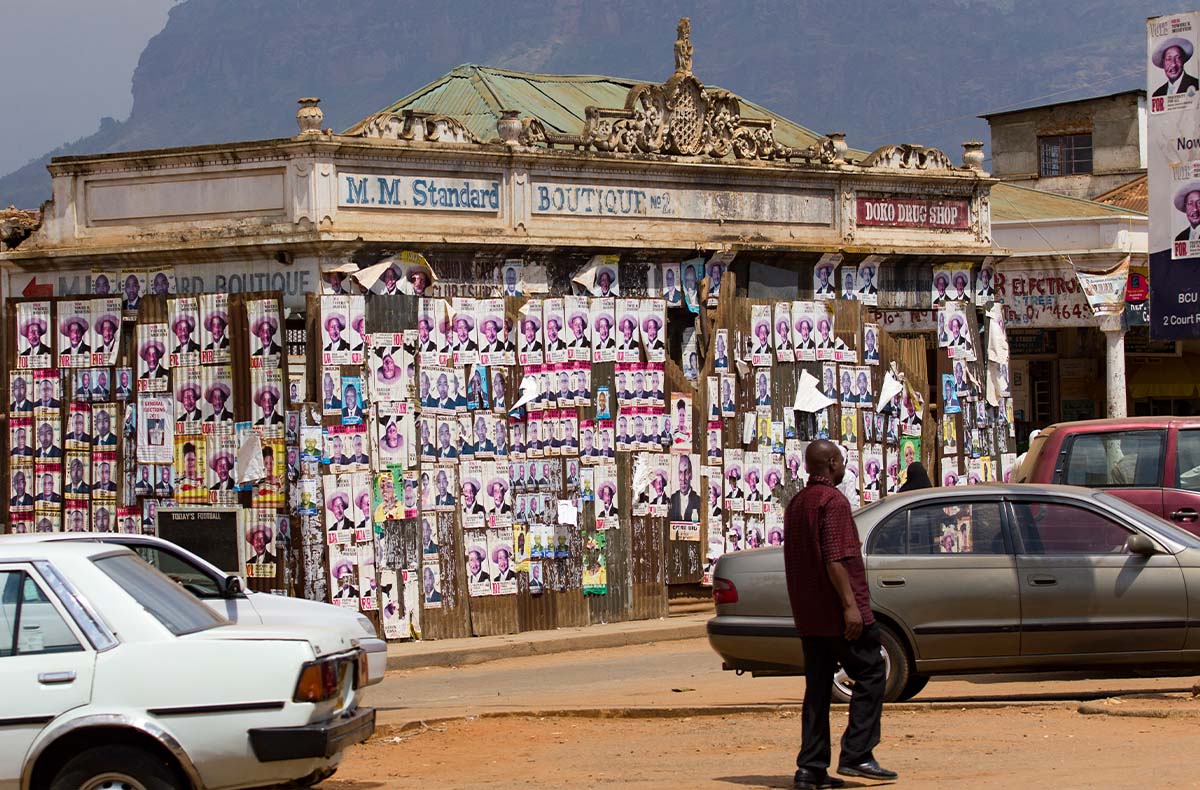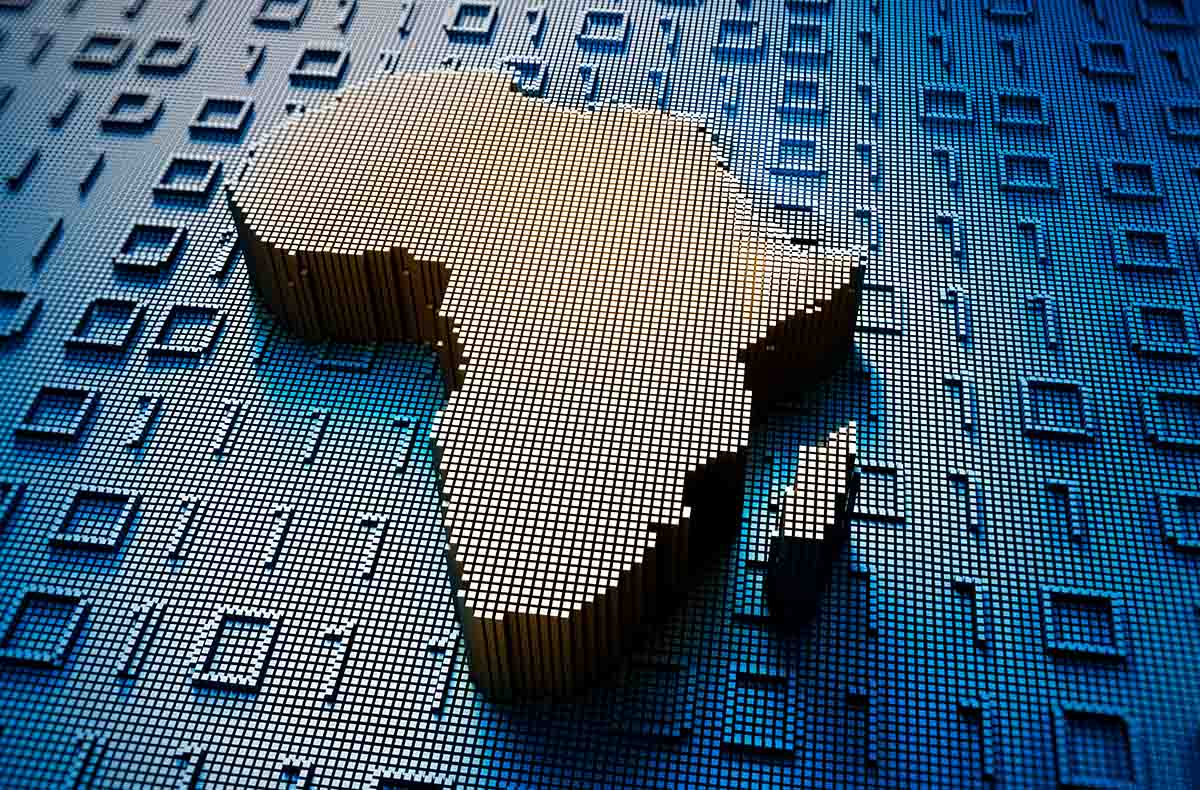
In the last two years, about twelve military coups have been attempted in different African countries with four “successes” scored in Mali, Chad, Sudan, and Burkina Faso. Mad coincidence, if you ask me. Often, they are led by young military officers who point to endemic corruption and bad governance as their excuse to seize power.
However, presenting coup d’etats as a solution to poor government belies ulterior motives. In my previous New Thinking article, “Making A Choice: Tech, Warfare, Guns and Bombs’’, I iterated how our Western-trained young military officials often returned from overseas military trainings only to take over power for power’s sake through coup d’etats—just because they could and had the means to. This time, it remains to be seen what the true purpose of these recent coups is, and who or what is behind them.
Although Western countries are quick to champion democracy’s supremacy as a form of governance, it has yet to be seen or experienced whether democracy truly is the best way forward for Africa’s collective development and prosperity in offering credible leadership. Leadership is not always one size fits all.
Prosperous Middle Eastern countries have achieved levels of development and responsive leadership despite being led by complicated sets of quasi-democratic monarchies for decades, and Communist China is heavy on strong economic fundamentals and free market approach. (Though of course, we must concede these countries often have their human rights record called into question.) Similarly, Russia and its seemingly oligarchic democracy has brought about socio-economic and political stability to Russians for more than a decade now, despite intermittent fluctuations caused by American and Western sanctions.
While we condemn countries like Iran and North Korea as examples of extreme authoritarianism, who really has the right to say what works in this complicated world of ours, or to be the determinant of universality? Maybe it is time Africa looked at a variety of leadership options to discover a blend that truly works for its specific needs.
Historically, Africa has always been polygamous, and I can tell you this mindset didn’t just start and end with family. It cuts across our religion—we have many gods and traditions—and shapes the way we interact with the world. So, assuming variety is the spice of life, must this not imply that, having tried democracy for half a century, it’s time we take a closer look to determine if it’s better to consider something new in our leadership? That, in the face of our failing democracies, we consider adopting or combining degrees of different governance options to create a unique style of leadership that works for us?
A failed democracy cannot guarantee freedom of expression, equity, fairness, justice and transparent transition of power though credible elections. Early this February, General Stephen Townsend, the United States commander of AFRICOM, expressed American government dissatisfaction about recent coups in Africa. What caught my attention was when he said military coups disrupt governments of the people and put in undemocratic governments that don’t represent the people’s choice. Yet this presupposes that these democracies are fair and functional in the first place. By my own estimation, 95% of African elections are electoral coups, too.
Most African leaders emerge with aid from ballot snatching and ballot buying, thereafter establishing nepotic governments with payback options that primarily lead to a collapse of effective leadership. These recent military coups, viewed through the prism of legitimacy, seem closer to representing the people’s choice than most elections do. Shockingly, they are overwhelmingly welcomed and supported by the “electorates” when they occur.
Government for the people, by the people has woefully failed in Africa. It will take men of uncommon thinking and sagacity to engage and successfully reset Africa’s murky democratic contraptions. Still we rise. I will use myself as an example, if you’ll permit me.
I ran for the office of the governor of Akwa Ibom, my state in Nigeria, in the 2019 elections. It is a state with a 6 million population, the second largest oil reserve in the country, and the largest gas reserve. Contrastingly, it also has Nigeria’s highest unemployment level, and ranks top for rates of HIV/AIDS infection alongside many other negative indices. With a GDP of $50 billion— greater than that of Rwanda—its economy is bigger than that of 50% of countries in West Africa.
Additionally, Akwa Ibom boasts vast natural resources and a geographical position capable of making it a hub for commerce in the West African region. Every resource in this place points against the contrasting reality of naked poverty from collected data when it comes to human capital and community development.
If leveraged correctly, there would be no way that Hong Kong—which has approximately the same population as Akwa Ibom yet no single natural resource apart from human capital—would fare better. The only reason they do is the Nigerian factor: the one-man-takes-all leadership approach, which has led to cronyism, nepotism, endemic corruption and bad governance. I still don’t know what my true score was in that election.
I was illegally excluded from the election petition tribunal when I approached it and no Nigerian court would hear my case thereafter. This is just one case among thousands. Am I letting up? No! I’m running again for governor next year: wish me luck!
Many African leaders, in order to advance their cause, repeatedly have left the population—their most potent resource—to wallow in illiteracy and poverty, allowing them to maintain control and remain in power perpetually. They have found a way to weaponize poverty and cloak fascism and dictatorship in the garments of democracy, albeit with no single atom of it in practice. Show me one country in Africa that has enjoyed the rewards of democracy and I’ll show you the bottom of the bottomless pit.
I am a firm believer in practical democracy, but in a country like Nigeria, I can tell you for free: it clearly hasn’t worked. For it to work, the West will need to put in more effort in sanctioning corrupt governments than what they’re doing at the moment, especially when it comes to monitoring African elections and laundering of its commonwealth, alongside engaging emerging young leaders. One glaring case in point is what is presently happening in Uganda between Bobi Wine and President Museveni, for example.
As Nigeria braces for another round of elections in 2023, the same players of old have bared their fangs, working loose political party conventions and primaries to emerge as candidates. In my state, for example, the executive governor, a deacon, has presented his anointed successor, a pastor, to the people—according to God’s revelations to him, he said.
The governor has rallied the paraphernalia of power behind his choice with top traditional rulers and political leaders in tow. A god has spoken—that same “god” who left the state as top rank on every conceivable negative index. Needless to say, the people’s boats have now been severely rocked to the tipping point. We are ready for change, and eager to escape the old patterns.
For now, though, as the agitations against bad governance again take hold across African countries including my own, let’s keep our minds open and leave all options on the table. What matters to me—and I guess to the majority of Africans—is that we Africans determine our future, one that will allow us to live in peace and prosper collectively. The medium through which this is achieved or delivered, to many of us, is totally irrelevant at this point. I stand to be corrected.



